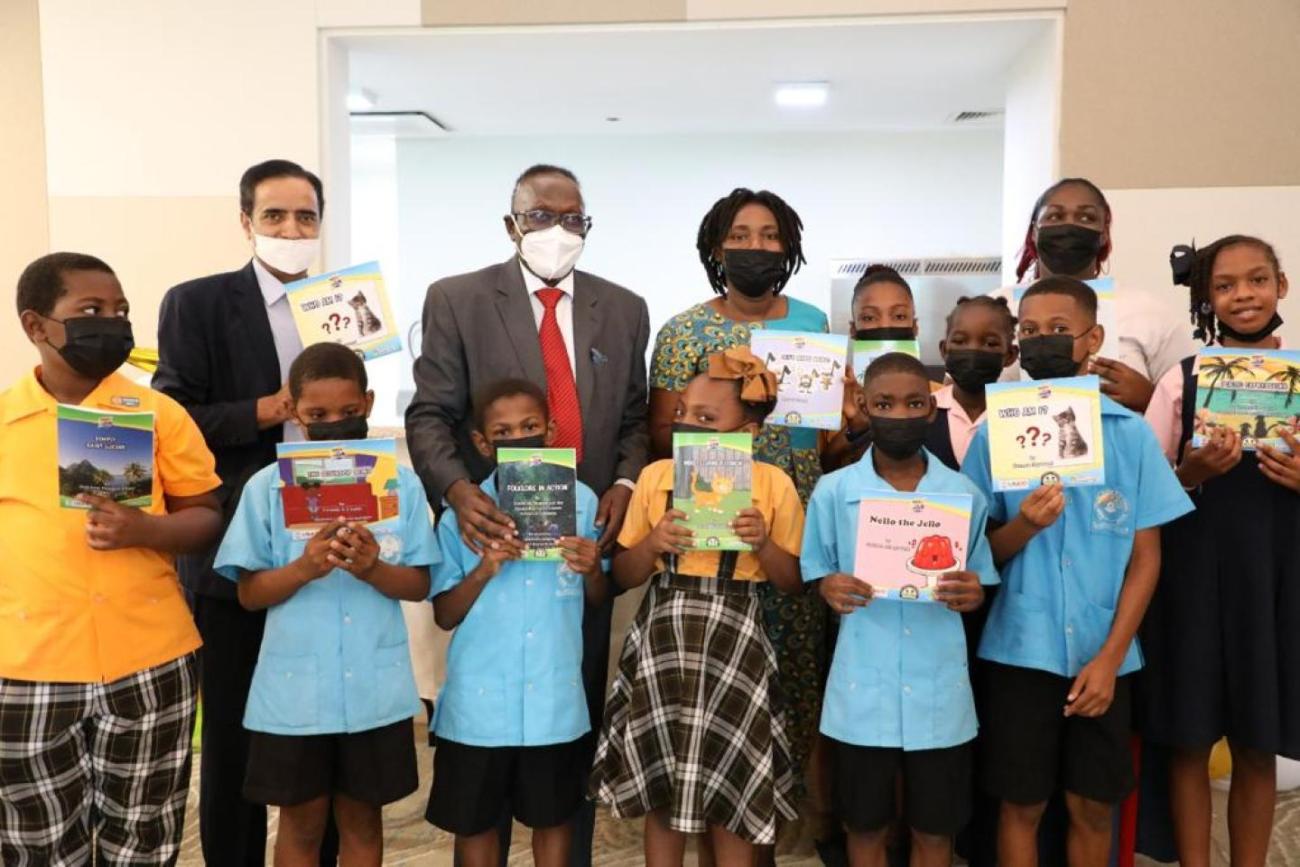EC Children get a Digital Boost

Eastern Caribbean countries better prepared for digital education.
ST LUCIA – 1 July 2022 - Thousands of children across the Organisation of Eastern Caribbean States (OECS) are better equipped to transition to digital learning environments when faced with exogenous shocks like natural disaster or a pandemic.
This is because of the Digital Education Capacity-Strengthening Initiative (DECI), which is a joint initiative of the Organisation of Eastern Caribbean States (OECS), UNICEF (UNICEF) and the United States Agency for International Development (USAID) to give teachers, students, and parents access to three thousand carefully curated courses.
The new platform provides digital education training and free access to critical learning materials that reflect the needs of children in the OECS at the Grades K to 3 levels in a manner that is culturally relevant, skills focused, user friendly and adaptable to children with special needs.
Dr Aloys Kamuragiye, UNICEF representative for the Eastern Caribbean Area described the initiative as innovative, timely, and forward thinking, particularly because of its usefulness if traditional methods of teaching and learning are once again disrupted.
“We talk a lot about re-imagining the future at UNICEF and this DECI intervention does just that,” Dr Kamuragiye declared.
“With this partnership between UNICEF, the OECS and USAID, we are looking to envision that future - and new educational horizons - with renewed confidence, optimism, and energy. And for that, we need to create pathways and structures so that if the worst should ever happen again, if traditional ways of doing things break down, our educational systems can cope. Not just cope but thrive,” the UNICEF representative added.
Dr Kamuragiye was addressing the launch of the DECI at the Harbour Club, St Lucia, under the theme: Developing Digital Content to Create Immersive Experiences.
During the address, he lamented the fact that although students have returned to school, many are unable to benefit from full-time face-to-face learning. Dr Kamuragiye was therefore moved by the inclusion of student voices in the development of the initiative that will ultimately benefit students and their peers.
“It is hard to see how children are going to overcome this deficit which often sees the most vulnerable children - those who did not have good internet access or tablets, those whose parents had to leave them all day to go to work - suffering the most. What they have lost is immeasurable,” said Dr Kamuragiye.
“That’s why what is happening with DECI matters so much. One of its key pillars is transitioning to a distributed, multimedia educational model which will allow for continuity of learning in any environment whether face-to-face or online. The four elements of this system: teacher training, connectivity, electronic devices and content development, are critical for success, especially in the context of building the capacity of teachers and principals to create engaging and accessible content,” he added.
The DECI builds upon established OECS Content Development initiatives like the OECS/USAID Early Learners Program (ELP) Write to Read book initiative, the Latin America and the Caribbean (LAC) Read Open Educational Resources (OER) Capacity programme and the iLearn Content Development Programme.
Sisera Simon, Programme Director of the OECS Education Development Management Unit underscored the importance of equitable access to high quality digital learning materials to the successful transition to a distributed learning system.
“This programme is well aligned with efforts that leverage digital technology to build resilience in the education system and support the continuity of learning in the OECS, especially in the event of some unforeseen disruption,” said Mrs Simon.
“It is hard to see how children are going to overcome this deficit which often sees the most vulnerable children - those who did not have good internet access or tablets, those whose parents had to leave them all day to go to work - suffering the most. What they have lost is immeasurable,” said Dr Kamuragiye.

